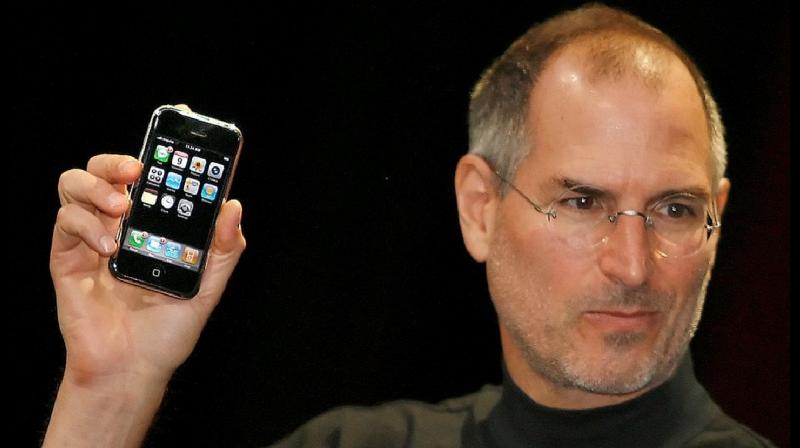How Apple's iPhone changed the norms of major industries

Technology giant Apple has always been known for bringing the most disruptive and innovative concepts to the table, be it smartphones, tablets or PCs. And to run these pieces of hardware, Apple has its own arsenal of operating systems which are capable of conquering the battle at the software front. The iPhone has been the company’s flag holder since its release and has managed to create a huge impact on the lives of millions of users around the globe.
On June 29, the company will celebrate the 10th anniversary of the iPhone and Apple is expected to unveil an anniversary edition for its fanatics. Back in 2007, the hype for an Apple-devised phone was off the scale. People started calling it the ‘Jesus Phone’ as some thought it would be extraordinary. The smartphone sure did live up to the hype and as they say rest is history.
The iPhone apart from the smartphone industry had a huge impact on other major industries over the years.
The very first industry the iPhone toppled was the PC industry. Until the iPhone hit the shelves, PC sales were around 400 million a year, but as the iPhone made it to the pockets of the consumers, the PC became less important. The iPhone became the primary source of media consumption and a critical tool for information and productivity. Before iPhone, the only way users can access the web was through a PC or a laptop.
The iPhone brought a revolution, thus paving the way for its Android equivalents which were inspired by Apple’s master-stroke and provided many with an option to stay connected regardless of their location. As a result, the PC industry now ships around 275 to 290 million PCs a year causing a level of industry merger that mainly revolves around HP, Lenovo, Dell, Acer and Apple.
After the PC industry, the telecom industry was the most impacted one after the iPhone had become a household name. Before the iPhone, the telecom business models were around Voice. Voice over IP already started pushing the telecom companies such as AT&T and Verizon to move to digital voice instead of traditional landline voice delivery methods. But the arrival of the iPhone forced them out of the voice business altogether.
Now the telecom providers have completely altered their business models and began offering information and entertainment services.
Then it was the turn of the movie and TV businesses that the iPhone turned on its head. Earlier people had to go the movie theatre in order to watch a movie or had to sit in front of a television to enjoy their favourite shows. The iPhone made it possible for the users to enjoy movies or TV shows on the go. This also forced studios to expand their distribution methods and include streaming services for mobile devices. Currently major video streaming services such as Youtube, Netflix and Hulu are on top of the chain, and at least 50 per cent of their content has been viewed using mobile devices.
The iPhone’s advent also impacted the gaming industry. Before the iPhone, most games were catered to users through gaming consoles, PCs or a dedicated handheld gaming device such as the Nintendo DS or Sony’s PlayStation Portable.
Apple’s flagship took mobile gaming to a new level and created an entirely different category of touch responsive games. This also allowed gaming firms like Nintendo to expand their business by bringing their iconic franchises to the mobile platform.
Although the free-to-play approach did fractionalise the revenue of the gaming giants, the brand exposure was unparalleled. For example, the Niantic's AR-centric Pokémon Go alone has been downloaded over 750 million times.
Last but not the least; the iPhone also impacted the health industry. Today, the iPhone is capable of monitoring a person’s health metrics and can also provide them with detailed health information. Users can get help from professionals or receive health advice virtually anytime, regardless of their location. Although this is just the beginning, but it is certain the impact on the health industry will further expand.
The iPhone today is responsible for Apple’s 60 per cent revenue, shattering sales records every passing year. Apple has sold over 1.3 billion units of the iPhone, cashing in more than $800 billion in return. The company is already on its way to become world’s first trillion dollar firm. With Apple poised to contribute to budding technologies like AR, we can imagine the company making even more personal devices in the future and transforming the industries in ways we cannot imagine.

